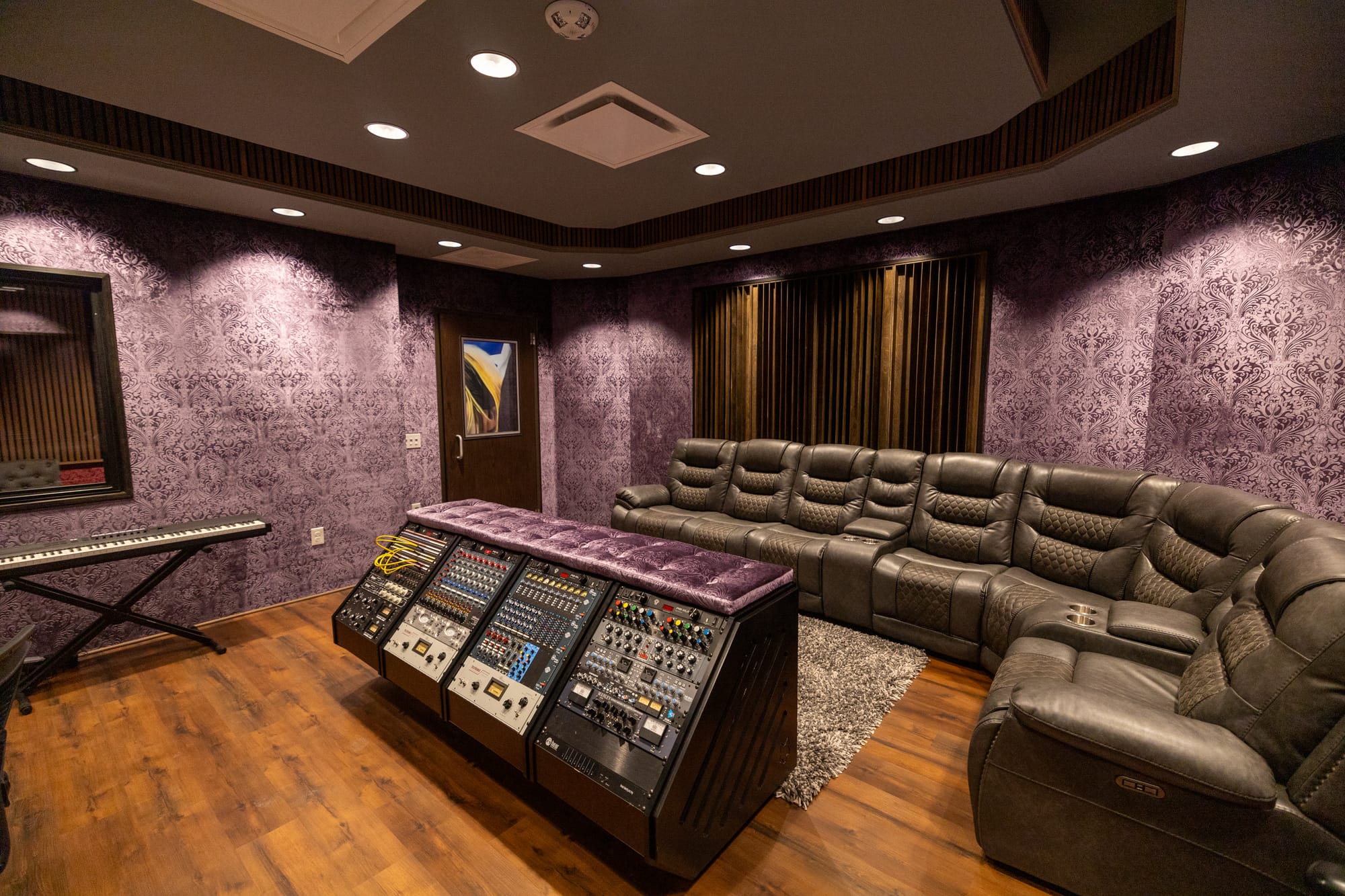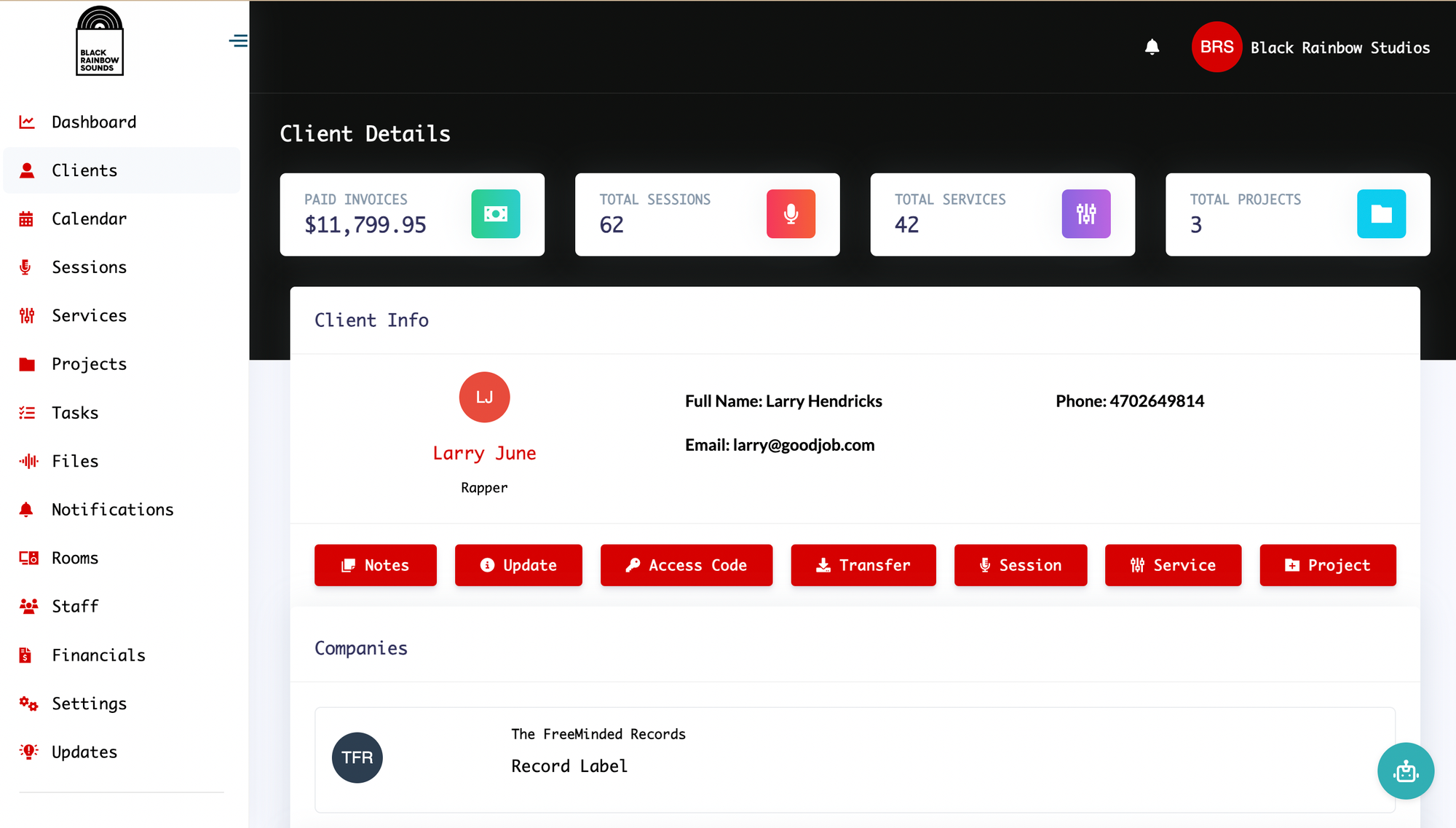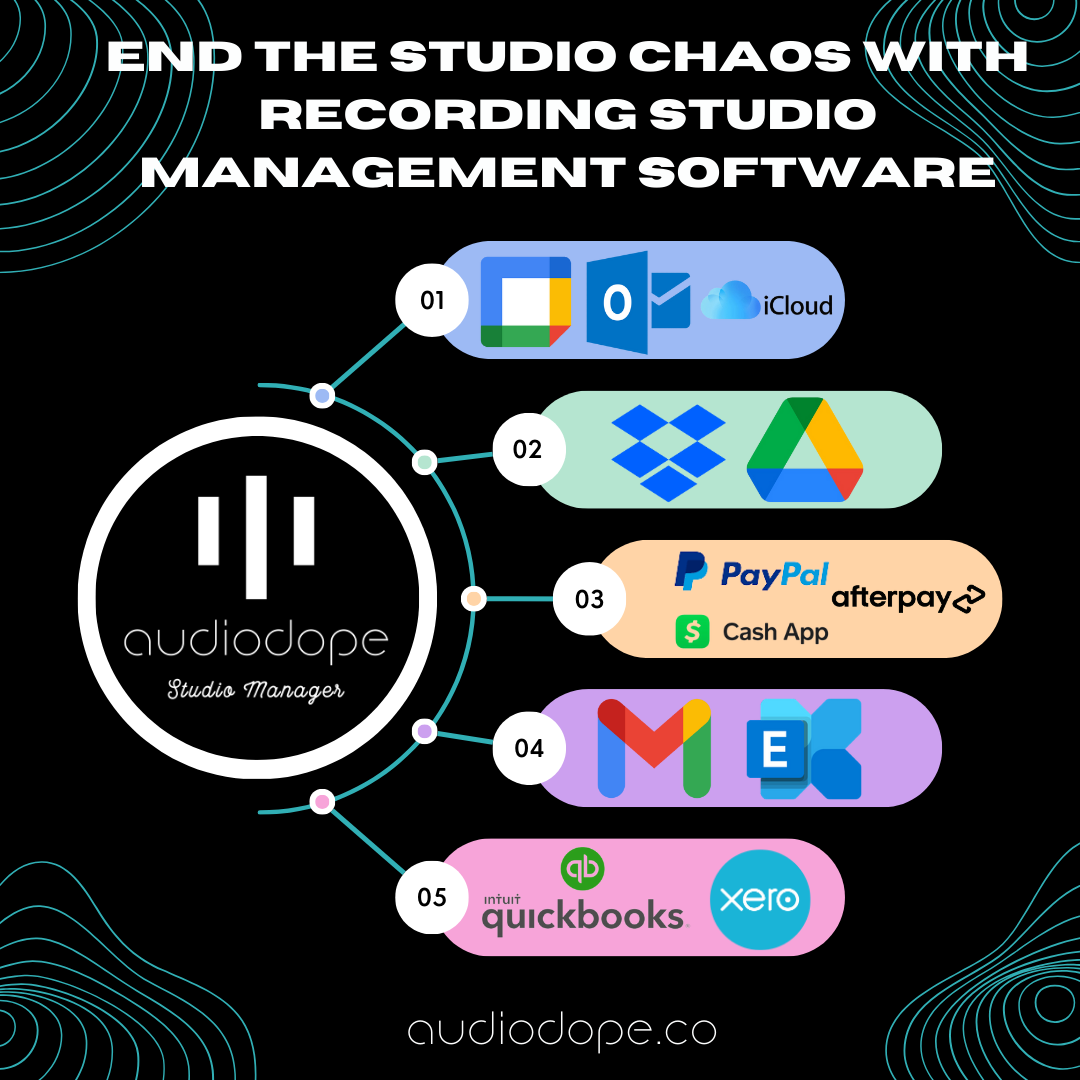The Future of Recording Studios: Is 2025 the Right Time to Start Your Own Studio?

Recording studios have been an integral part of the music industry for decades, providing artists with the tools and environment necessary to create and capture their artistic visions.
From the early days of analog recording to the digital revolution, these creative spaces have evolved alongside technological advancements, shaping the way we experience and appreciate music.
The evolution of recording studios
The history of recording studios can be traced back to the late 19th century when the first rudimentary recording devices were invented. Over time, these facilities transitioned from basic rooms with primitive equipment to state-of-the-art facilities equipped with cutting-edge technology.
The advent of multitrack recording, digital audio workstations (DAWs), and virtual instruments have revolutionized the recording process, allowing for greater flexibility, precision, and creativity.
The impact of technology on recording studios
Technology has been a driving force behind the evolution of recording studios. The introduction of digital audio workstations (DAWs) and virtual instruments has transformed the way we approach recording, mixing, and mastering. These advancements have not only streamlined the recording process but also opened up new creative possibilities for artists and engineers alike.
Moreover, the rise of affordable home recording setups has democratized the industry, enabling aspiring musicians and producers to create professional-quality recordings from the comfort of their own spaces. This has led to a proliferation of independent artists and a shift in the traditional recording studio business model.
The current state of the recording studio industry
The recording studio industry has undergone significant changes in recent years. While traditional commercial studios continue to thrive, catering to high-profile artists and projects, there has been a notable increase in the number of project studios and home recording setups.
This trend has been driven by the accessibility of affordable recording equipment, the popularity of online collaboration tools, and the growing demand for content creation across various platforms.
However, the COVID-19 pandemic has presented unique challenges for the industry, with many studios forced to temporarily close or operate under strict safety protocols. This has accelerated the adoption of remote recording techniques and highlighted the need for adaptability and innovation within the industry.
Popryland - Nashville TN(Andrew Masters Studio Tour)
Predictions for the future of recording studios
As we look towards the future, it is evident that the recording studio industry will continue to evolve and adapt to emerging technologies and changing consumer behaviors. Here are some predictions for the future of recording studios:
- Increased Integration of Artificial Intelligence (AI) and Machine Learning (ML): AI and ML will likely play a more significant role in the recording process, assisting with tasks such as audio editing, mixing, and mastering. These technologies could potentially enhance creativity and efficiency while also opening up new avenues for artistic expression.
- Immersive Audio Experiences: With the growing popularity of virtual reality (VR) and augmented reality (AR) technologies, recording studios may explore ways to create immersive audio experiences that transcend traditional stereo or surround sound setups.
- Cloud-based Collaboration: Remote collaboration has become increasingly common, and this trend is expected to continue. Cloud-based platforms and services will likely become more sophisticated, enabling seamless real-time collaboration between artists, producers, and engineers across different locations.
- Sustainable and Eco-friendly Studios: As environmental concerns become more pressing, recording studios may prioritize sustainable practices and eco-friendly technologies to reduce their carbon footprint and promote environmental responsibility within the industry.
Is 2025 the right time to start your own studio?
Considering the current trends and predictions, 2025 could be an opportune time to establish your own recording studio. However, it is crucial to carefully evaluate the market conditions, competition, and your target audience before making such a significant investment.
- Market Demand: Conduct thorough market research to assess the demand for recording studios in your area. Identify potential clients, such as local musicians, bands, podcasters, and content creators, and determine if there is a gap in the market that your studio could fill.
- Competition Analysis: Analyze the existing competition in your area, including commercial studios, project studios, and home recording setups. Identify their strengths, weaknesses, and unique selling propositions to differentiate your studio and establish a competitive advantage.
- Financial Considerations: Starting a recording studio can be a significant financial investment. Carefully evaluate the costs associated with equipment, space rental or purchase, soundproofing, and ongoing operational expenses. Develop a comprehensive business plan and secure adequate funding or financing to ensure the long-term sustainability of your venture.
- Technological Advancements: Stay up-to-date with the latest technological advancements in the recording industry. Consider investing in cutting-edge equipment and software to ensure your studio remains competitive and attractive to potential clients.
- Adaptability and Diversification: Be prepared to adapt to changing market conditions and consumer preferences. Consider diversifying your services to include areas such as podcasting, audio for video, or immersive audio experiences to broaden your client base and revenue streams.
The role of a Studio Manager in the future
As recording studios evolve, the role of a studio manager will become increasingly multifaceted and crucial for the success of the business. In addition to overseeing the day-to-day operations and managing client relationships, future studio managers will need to possess a diverse set of skills, including:
- Technical Expertise: A deep understanding of recording technologies, equipment, and software will be essential to ensure efficient and high-quality recording sessions.
- Business Acumen: Strong business and marketing skills will be vital for attracting and retaining clients, managing finances, and staying competitive in the ever-changing industry landscape.
- Creative Vision: The ability to collaborate with artists and understand their creative visions will be crucial for delivering outstanding results and fostering long-term client relationships.
- Adaptability and Continuous Learning: As the industry evolves, studio managers must be willing to adapt to new technologies, trends, and workflows, continuously expanding their knowledge and skills.
- Project Management: Effective project management skills will be necessary to coordinate complex recording sessions, manage multiple projects simultaneously, and ensure timely delivery of high-quality results.
Navigating through a recession as a recording studio owner
Economic downturns and recessions can pose significant challenges for recording studio owners. However, with careful planning and strategic decision-making, it is possible to navigate through these difficult times and emerge stronger. Here are some strategies to consider:
- Diversify Your Services: Offering a diverse range of services can help mitigate the impact of a recession on your business. Consider expanding into areas such as podcasting, audio for video, or immersive audio experiences to attract a broader client base.
- Optimize Operational Costs: Evaluate your operational costs and identify areas where you can streamline expenses without compromising the quality of your services. This may involve renegotiating leases, exploring energy-efficient solutions, or implementing cost-effective marketing strategies.
- Foster Client Relationships: Maintaining strong relationships with existing clients is crucial during economic downturns. Provide exceptional service, offer loyalty programs or discounts, and actively seek feedback to ensure their continued satisfaction and loyalty.
- Embrace Remote Collaboration: Leverage remote collaboration tools and technologies to expand your client base beyond geographical boundaries. This can open up new revenue streams and provide greater flexibility in managing your studio's resources.
- Continuous Marketing and Promotion: Even during a recession, it is essential to maintain a strong marketing and promotional presence. Utilize cost-effective digital marketing strategies, such as social media, email campaigns, and content marketing, to keep your studio top-of-mind for potential clients.

The importance of staying updated with music trends
In the ever-evolving music industry, staying updated with the latest trends is crucial for the success of a recording studio. Failure to adapt to changing consumer preferences and artistic styles can lead to stagnation and a loss of relevance. Here are some reasons why staying up-to-date with music trends is essential:
- Attracting and Retaining Clients: By understanding and embracing the latest music trends, you can position your studio as a forward-thinking and relevant establishment, attracting artists and clients who seek to create cutting-edge and trendsetting music.
- Offering Relevant Services: Keeping abreast of music trends allows you to anticipate the evolving needs of your clients and adapt your services accordingly. This could involve investing in new equipment, software, or techniques to cater to specific genres or styles.
- Fostering Creativity and Innovation: Being aware of emerging music trends can spark inspiration and foster creativity within your studio. By exposing yourself and your team to new sounds, styles, and techniques, you can encourage innovation and push the boundaries of what is possible in the recording process.
- Maintaining a Competitive Edge: In the highly competitive recording studio industry, staying ahead of the curve in terms of music trends can give you a significant advantage over studios that fail to adapt. This can help you attract and retain clients who value innovation and cutting-edge approaches.
- Building Industry Credibility: By demonstrating a deep understanding of music trends and their impact on the recording process, you can establish your studio as a thought leader and trusted authority within the industry, enhancing your credibility and reputation.
To stay updated with music trends, consider the following strategies:
- Attend industry events, conferences, and workshops to network with artists, producers, and other professionals.
- Actively engage with music blogs, forums, and online communities to stay informed about emerging styles and technologies.
- Collaborate with up-and-coming artists and producers who are pushing the boundaries of their genres.
- Continuously educate yourself and your team through online resources, tutorials, and training programs.
Introducing AudioDope - a revolutionary tool for recording studio management
In the ever-evolving landscape of recording studios, effective management and organization are crucial for success. Introducing AudioDope, a revolutionary tool designed to streamline and optimize various aspects of recording studio operations.
AudioDope is a comprehensive software solution that combines powerful features for project management, client communication, resource allocation, and financial tracking. With its intuitive interface and robust functionality, AudioDope empowers studio managers and owners to efficiently manage their studios, ensuring seamless workflows and exceptional client experiences.

Here are some key features that make AudioDope a game-changer for recording studio management:
- Project Management: AudioDope allows you to create and manage projects with ease. You can assign tasks, set deadlines, and track progress, ensuring that every recording session runs smoothly and efficiently.
- Client Communication: Effective communication is essential in the recording industry. AudioDope provides a centralized platform for communicating with clients, sharing files, and collaborating in real-time, fostering transparency and enhancing client relationships.
- Resource Allocation: Optimize the utilization of your studio's resources with AudioDope's advanced scheduling and resource allocation tools. Easily manage bookings, assign engineers and producers, and ensure efficient use of equipment and facilities.
- Financial Tracking: Streamline your financial operations with AudioDope's comprehensive invoicing and billing features. Generate detailed invoices, track payments, and gain valuable insights into your studio's financial performance.
- Reporting and Analytics: Make data-driven decisions with AudioDope's powerful reporting and analytics capabilities. Gain valuable insights into project timelines, resource utilization, and financial metrics, enabling you to identify areas for improvement and optimize your studio's operations.
AudioDope is designed with scalability in mind, ensuring that it can grow along with your studio's needs. Whether you're a small project studio or a large commercial facility, AudioDope provides the tools and flexibility to streamline your operations and elevate your studio's efficiency and professionalism.
Conclusion
As we embark on the journey towards 2025 and beyond, the recording studio industry is poised for significant transformation. Technological advancements, changing consumer behaviors, and evolving market dynamics will shape the future of these creative spaces.
While the decision to start your own recording studio in 2025 requires careful consideration and strategic planning, the potential rewards are substantial.
By staying ahead of the curve, embracing innovation, and adapting to emerging trends, you can position your studio as a leader in the industry. Leverage cutting-edge tools like AudioDope to streamline your operations, foster client relationships, and maintain a competitive edge.


